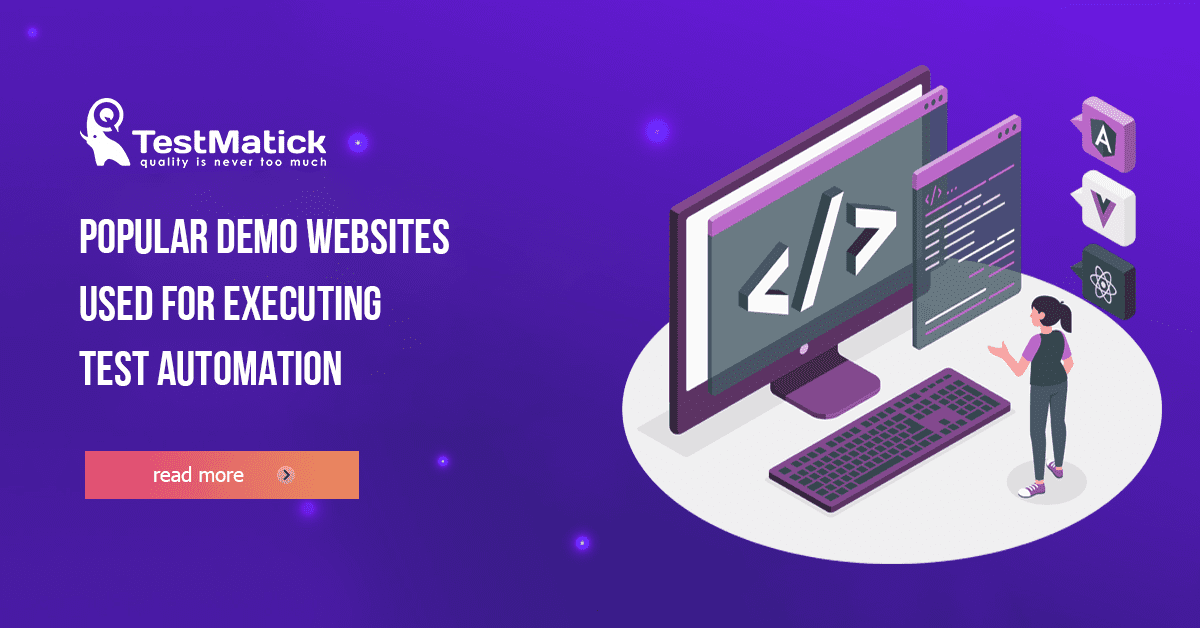Practice is one of the biggest issues for a specialist who wishes to become a test automation engineer.
Testing is art — in the same way as various types of science.
Understanding where we should add real expectations, how to develop stable groups of locators, and why we should test a certain interface requires a lot of time spent.
Anyway, such learning is connected with using special web platforms whose functionality allows testing certain automation operations.
Demo websites are one of the most popular platforms.They can be used to practice your skills and develop your own testing methods.
A list of demo websites and its types
Today demo platforms should be classified in the following way:
- Web UI — external displaying of a real website;
- Web UI elements — a list of learning pages that contain displayable types of web elements;
- Mobile UI — external displaying of a real mobile website;
- API — public API for multi-purpose testing;
- DIY — platforms where you can build the required environment yourself.
| Title | Type | Description |
|---|---|---|
| ParaBank | Web UI, API | Used for local launch when users with login and REST API try to interact with test DBs |
| Restful Booker | Web UI, API | A test online portal for booking hotels. Software code — React, back-office — REST API |
| Automation Practice Website | Web UI | Popular online environment with optional access from SeleniumFramework.com. A good web resource for developing Web UI tests |
| Demoblaze | Web UI | An online store with optional access from BlazeMeter. It’s good for executing Web UI tests |
| Swag Labs | Web UI | A store with login and password from Sauce Labs. It helps to find hidden issues with Web UI |
| Automation Bookstore | Web UI | A website for searching books; contains one page. It’s perfect for testing a dynamic layout in a short demo mode |
| Device Registry Service | DIY API | Flask utility, aimed at learning REST API testing |
Are these platforms really useful?
Perhaps, you may ask: do we really need such demo platforms for web testing companies?
The answer is simple: such demo websites completely meet many technical requirements that can’t be covered by real websites.
These platforms have the following features:
- Demo websites are constant. They are implemented one time and stay static. It’s expected that tests executed on such platforms will be stable and constantly executing;
- They are simpler than real websites. Even newbies can execute tests there;
- Numerous real websites ask users to accept the privacy policy and this puts a ban on automated request execution.
But together with benefits, there are a few drawbacks:
- Sometimes they can be very simple. They may not contain big scripts and real information;
- They can be created without a focus on scalability. Simple load with requests can break such websites;
- They can look like low-quality resources, no matter if this is true or not. Sometimes they are developed for testing, not paying much attention to details, compared to real web portals.










Leave A Comment